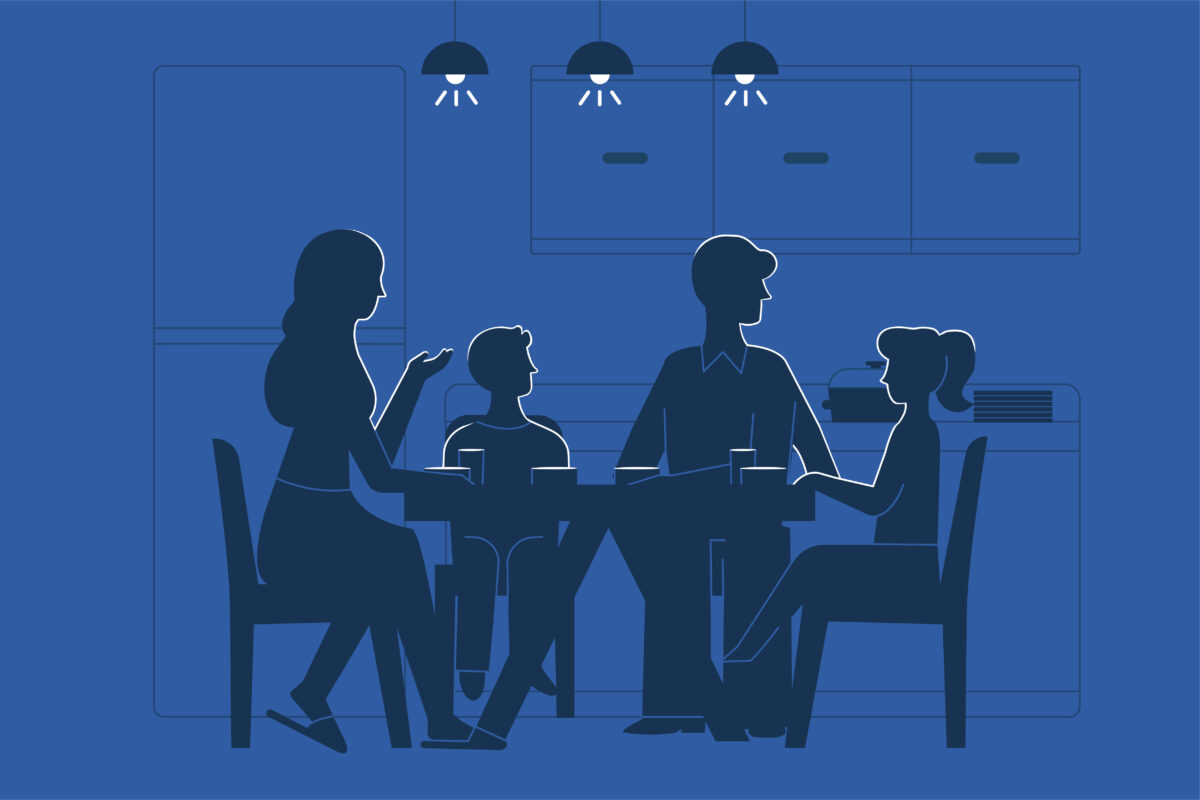Our almost 8-year-old is an avid reader. Even before the pandemic struck, Ravi would stay up late in bed with a pile of books. When The New York Times weekend edition arrives at our door, though, she is quick to note one recurring fact: the rising death toll.
Death has certainly been discussed in our home in the past but with the coronavirus, we’re addressing it on a much more regular basis — especially when Ravi reads the headlines before we have a chance to.
Luckily, Ravi’s mom is a social worker, who isn’t afraid of the subject of death. For me, a rabbi, I’ve got just a few thoughts on the matter myself.
“Is where you go when you die where you are for the rest of your life?” Ravi asked.
“No one knows,” my wife, Yael, answered.
“No one knows,” I echoed. “People have lots of different opinions or beliefs about it, but mommy’s right, no one knows for sure.”
A silence.
I’m going to be honest here: I feel a certain excitement whenever Ravi brings up death. It’s as if the security flashers on the airport tarmac are shining: growing kid, ready for adult conversations, right this way!
As a grandchild of Holocaust survivors,I think about death and cattle cars every time I ride a crowded subway. During Passover, when Ravi sings “Ma Nishtana” in Yiddish — a family tradition — I remember how my father taught me Yiddish Holocaust songs as a kid. How, though, do I balance the need to respond to my daughter in an emotionally sensitive way while staying true to and honoring the somber role of death in our lives?
In these Covid-19 days, Ravi tends to bring up death around bedtime.
“I don’t want to die,” she said on one such evening.
“What is making you think about that?” Yael asked.
“Nuni told me her brother drowned when he was a kid.” Nuni, our old babysitter, whom we had hired for a brief period.
Yael and I exchanged glances, wondering what could have precipitated such a sharing of news by this particular sitter. “Yes, that’s a tragedy,” Yael said. “You know that word. And tragedies happen but they are unusual.”
“And we can choose how to respond,” I added. “Like how we stop for a siren when we’re outside to hope everyone’s OK. Like how we spend two minutes every evening to run to the window and scream ‘thank you’ on the top of our lungs to the countless people who work as doctors and nurses and risk their own safety and care for us.”
“I’m still scared of dying,” Ravi said.
“You know the lady who I visit with who’s 97 years old?” I asked Ravi. “She has the same fear as you.”
Another silence.
It can be uncomfortable talking about death even among adults, and this same gnawing, fear eats at our 7-year-old and the 97-year-old woman I’m privileged to visit. That life can remain that mysterious over such a long period of time fills me with awe. It also reminds me that answers to life’s biggest questions remain unanswerable, regardless of whether they’re being addressed to a young child or an elderly adult.
A friend of mine has been having similar conversations with his daughter, who recently told him: “When you and mommy die, I’d like to live with my cousins.”
My friend asked me: “Do I adjust my will accordingly?”
“Death is part of life” is a phrase I find myself saying these days more than I ever imagined. The flow between both is constant and perhaps even magnified in this time of pandemic. Just the other day, I attended a niece’s birthday party, followed by a funeral for a friend’s grandmother, followed by a wedding — all via Zoom. And because I’m participating in these events at home, Ravi has been around, listening and eavesdropping all the more intently, witnessing me in life’s different stages.
I wish I had the answers to my daughter’s questions. I wish I had any answer, really, as to when the virus will end, when she’ll be able to hug her grandparents again, why people get sick, why people hate and fight and die young. I don’t. I wish I could shield her from a life of suffering, but I can’t. I take solace knowing these questions are ones I must have asked my parents, and my parents asked their grandparents, and so on, from generation to generation. And I take comfort knowing that I am raising her in a tradition that values her questioning above any answer I might struggle to provide.
This article was made possible with the generous support of UJA-Federation of New York. For additional resources related to Judaism and end of life care, death, and mourning, click here.
Illustration by Best Content Production Group/Getty Images








